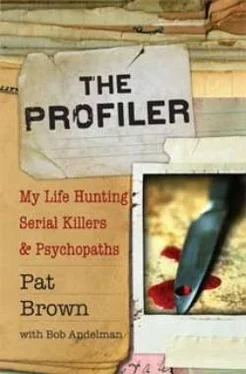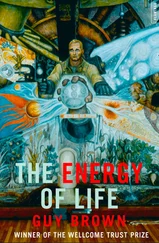I eventually studied in Denmark, traveled through Europe, lived a bit in London, and then flew off to Jamaica for a little island culture.
MOST PEOPLE THINK of Jamaica as an idyllic tourist spot with turquoise water and a bit of reggae thrown in. I, however, was staying in Kingston, and that part of Jamaica is, as they say down in “De Yard,” rough.
I saw my first crime scene in Jamaica. I went out on a date with a businessman, quite well to do. We drove to New Kingston, through all the red lights, without stopping. Stopping, I was told, was foolish, because you never knew what kinds of people were out on the roads at night. It was a bit disconcerting, but my faint nervousness settled as my date escorted me into a posh restaurant.
Dinner was delicious, dessert was heavenly, and one of the gentleman’s friends stopped by our table and introduced himself. Then he bid us good night, walked out the door, and died. He was shot to death by his secretary’s boyfriend and his wallet was taken.
I stood outside with my date, and the crowd and I stared at a man who had been alive five minutes earlier, now frozen in a crumpled position, arms outstretched, legs akimbo, eyes staring up. Blood was pooled around his head. Relatives arrived and the screaming began. The screaming is the memory I keep of that day. The screaming and screaming and more screaming.
My date and I said little as we drove back to my lodging. He escorted me up the stairs with his gun drawn and then, like a gentleman, left me there unarmed.
The sight of the dead man that night has never left me, but it certainly didn’t inspire me into a life of crime analysis or police work. I think I preferred a prettier side of life.
I really wanted to be a cultural anthropologist, but I wasn’t great at staying in school because I often felt unchallenged by my studies. I went to the University of New Mexico in Albuquerque and realized I hated living in the desert, so I left. I spent a brief time at some community college in California I can’t remember the name of (it must not have been a very inspiring place), a fall semester at American University in Washington, D.C., and a spring semester in Denmark. I liked cultural anthropology, but I didn’t see a future in it. I couldn’t quite decide what I wanted to major in, so instead I got married at twenty-three.
I majored in that.
I MARRIED TONY, a Jamaican immigrant who came to America when he was fifteen years old. I became pregnant the first year we were married, had a child, and I absolutely loved being a mother.
In Africa, women carried their babies on their backs and slept with their children, so that seemed perfectly natural to me, although no one else I knew did it. It never crossed my mind to use a bottle or put my child in a crib. I nursed my daughter when she was born and she never got anything but breast milk. She didn’t get water, or juice, or even a pacifier. I wouldn’t even know how to make formula. And I never understood the concept of putting little infants far away from their mothers in a pen in a separate room. I slept with my babies because that seemed normal to me. I cuddled up with them and nursed them through the night.
I gave birth to my second child at home because I didn’t like my first hospital experience. I decided to have an unattended birth. My son was born in my bedroom right upstairs with the help of a friend who was almost a midwife; it was “unattended” because she wasn’t yet technically qualified for the job. But, I thought, if my grandmother-in-law could have fourteen children by herself, I could handle it with a friend. It was great. Well, it hurt like hell, but it was great.
I loved being a mom, an experience I never dreamed would be such a great thing. I was just madly in love with my daughter the minute I laid eyes on her and fell in love all over again when my sons, David and Jeremy, arrived. I became kind of an earth mother. My life revolved around my children, my husband, and my home. It may have been the 1980s, but I lived a very traditional homemaker’s life.
When it came time to send my children to school, I checked out the local school system. What I saw absolutely appalled me. I sat in a class for three hours. At the end of my observation period, as we left, I grabbed my five-year-old daughter by the hand and said, “They’ll never get you.” I found the children uniformly rude and disrespectful. I didn’t like all the yelling and lack of discipline, and I found the atmosphere unpleasant and uninspiring.
I decided to homeschool, and I became part of the homeschool community in our small town, teaching my children until they went to college.
We didn’t have much money, because we had only one income, and my husband, who was a mechanic at the time, wasn’t making a lot, so private school wasn’t an option.
People we knew thought that homeschooling was brave because it wasn’t a popular choice back then, and the school authorities could hound you over such a decision and make life difficult. But I made the decision and I stuck with it.
I was already a homebody-I wanted to be Amish when I was fifteen. I found us this big, 250-year-old farmhouse in a regular neighborhood, and I felt I could raise lots of children here. I sponsored playgroups in our house and the kids joined the Boys and Girls Club. Sometimes we had twenty kids running around from all over the neighborhood, and my house became a big meeting place for children. We played baseball games in the front yard and water games in the back. It was a busy place, and I enjoyed every moment of raising my kids here. We had lots of pets: cats, gerbils, hamsters, frogs, and iguanas. My daughter had a rat named Millie and our potbelly pig, Gwendolyn, was the talk of the neighborhood.
After my second child, I had a tubal pregnancy and couldn’t get pregnant again, so we adopted a third child, Jeremy, who was six years old at the time. We were warned that he had learning disabilities, which I always thought was bunk. I said, “The only disability he has is the fact that the adults around him don’t want to be responsible. How can a child pay attention at school if he must live in foster care and doesn’t know where his home is?” I realized school wouldn’t be good for him, either, so I homeschooled him as well, and he’s done just fine.
We read a lot of books together and because of my weakness, we went to see many, many musicals. Usually, it was at the local high school because that was all I could afford.
We attended a small community Christian church where most of the kids were homeschooled. The area homeschooling group with which we were involved included people of many different religions, or nonreligions as my atheist friend, Jack, might say, or changed religions, such as Zelda, the Jew turned Buddhist.
Today David is on his way to a master’s program in economics after studying in Mexico, Hawaii, and India. Jeremy is a federal officer who runs a SWAT team as part of his work in security for NASA. And Jennifer, my oldest, is a detective working for a local police department. Homeschooling did okay by them, and I didn’t ever have to go to the state prison on visiting days or pick up my kid from rehab.
AS THE KIDS matured, I thought I should have some kind of a career, because what would happen to me when they all went to college? By now I had a bachelor’s degree in liberal arts, but I wasn’t sure what to do with it.
I remembered how much I loved working with deaf children, so I took sign language classes in the evenings and brushed up on my rusty skills.
I did well enough that I was asked to take in a thirteen-year-old, deaf, pregnant foster child. That was one of my first life experiences dealing with someone who was struggling in a difficult situation.
Meanwhile, my husband and I were struggling in a different way. I was home full-time, raising the kids, and he went off to work to pay the bills. We started renting rooms in our big house in order to survive.
Читать дальше












